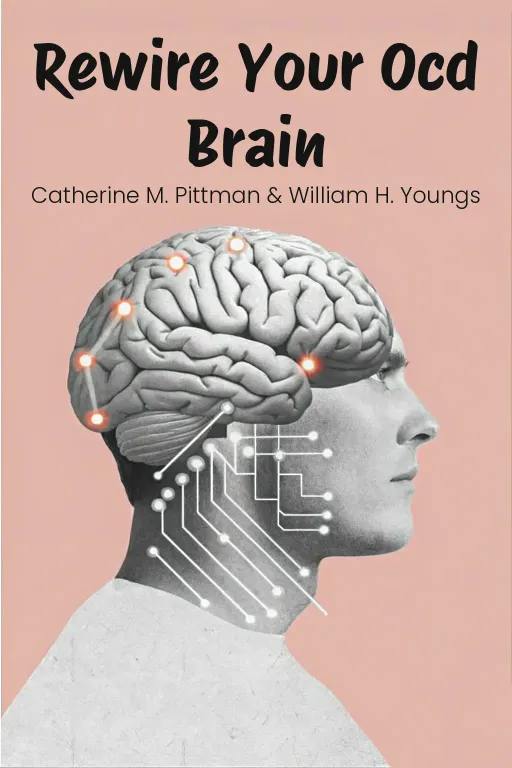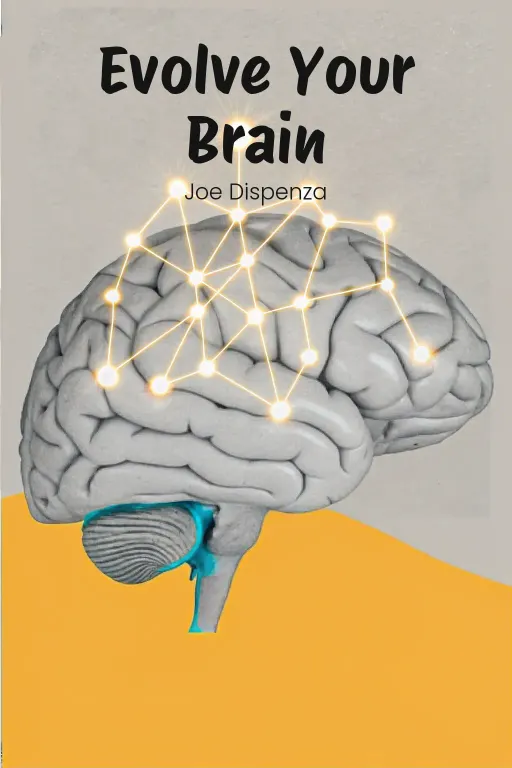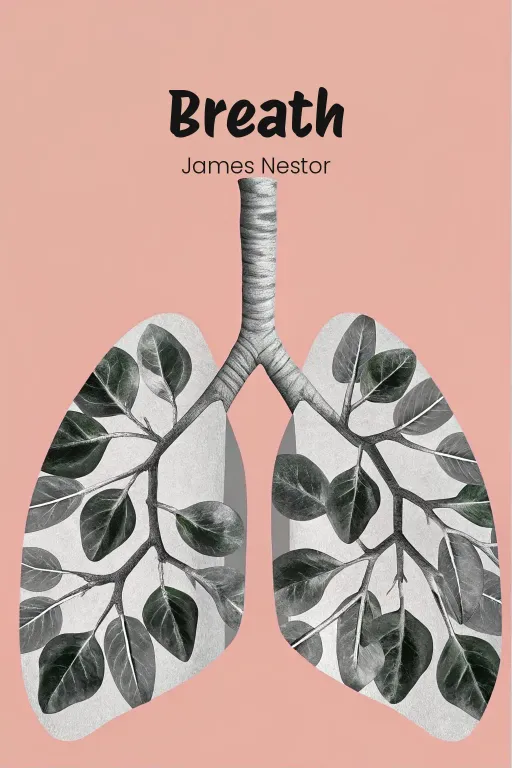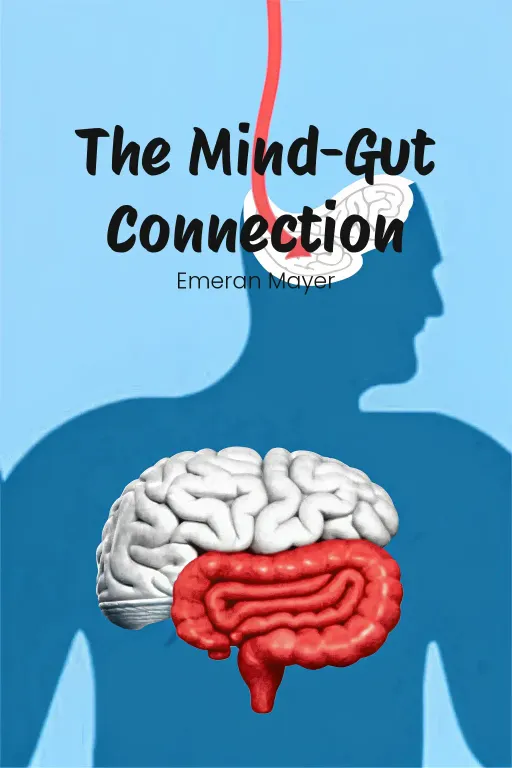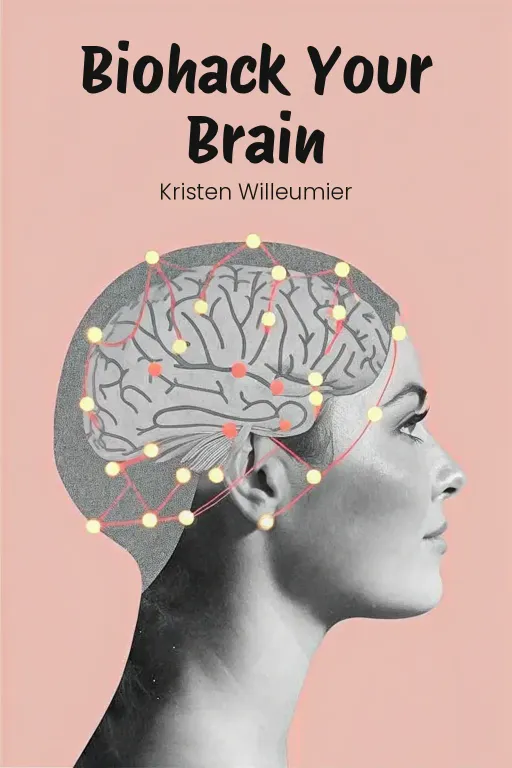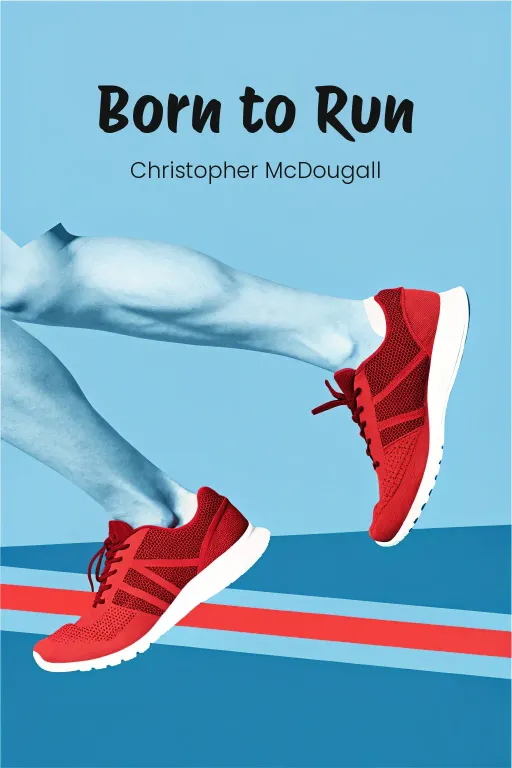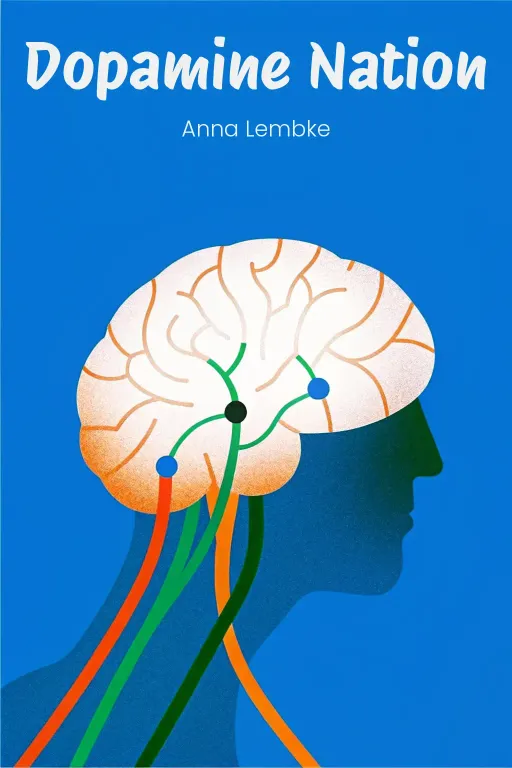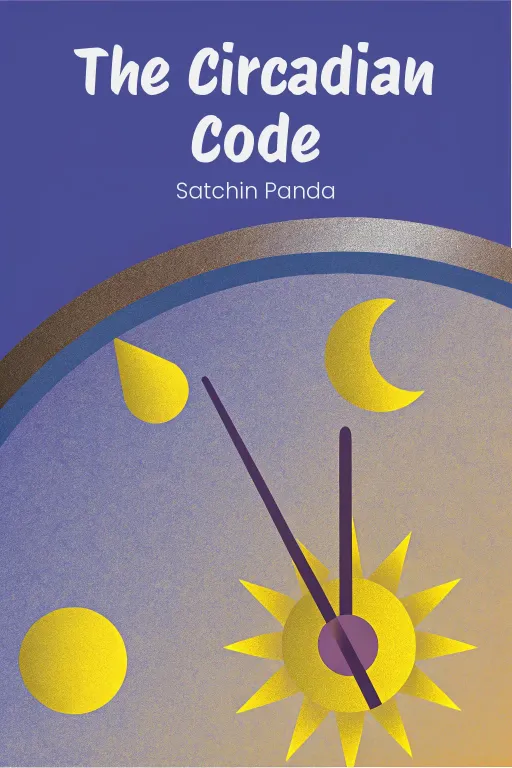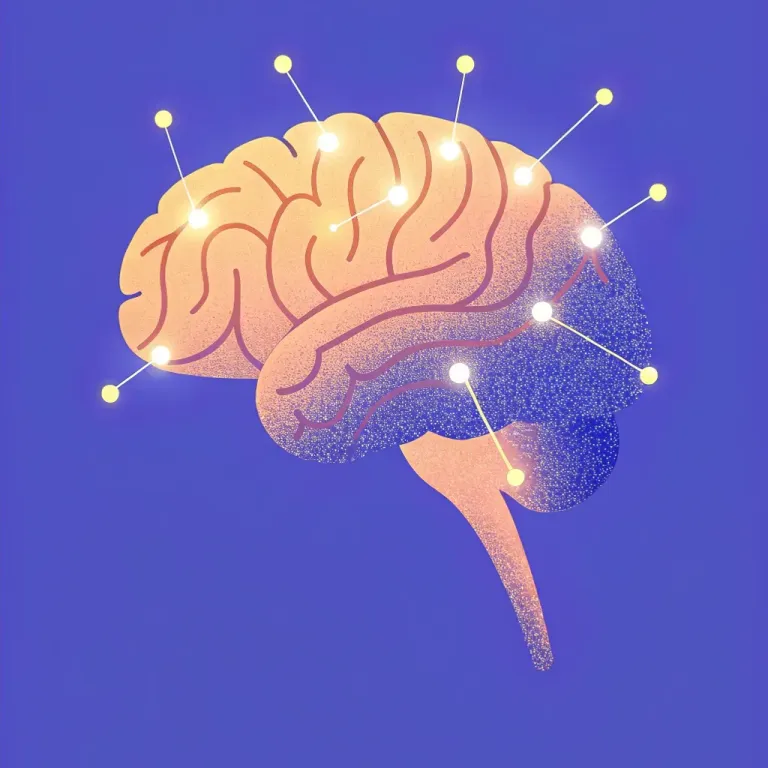
Brainpower: Hack Your Mental Edge
Podcast by Wired In with Josh and Drew
How to Boost Cognitive Health, Performance and Power
Brainpower: Hack Your Mental Edge
Part 1
Josh: Hey everyone, and welcome back to the show! Today, we're diving deep into something super fascinating, and also incredibly personal: your brain! I mean, did you know that this amazing, three-pound organ is constantly rewiring itself? It's all based on what you do, what you think, and even what you eat. So, what if you could actually optimize it to work smarter, not harder, for the long haul? Sounds pretty good, right? Drew: Yeah, let's be real, Josh. Most of us only think about our brains when something goes wrong. You know, you forget where you parked the car, you can't focus at work, or you're just completely mentally wiped out. But what if we're missing out on a huge opportunity here? What if we could actually protect, and even improve, our brains before we hit that wall? That’s the real question. Josh: Exactly! And that's precisely what we're exploring today. It's all about cognitive health, and it's jam-packed with strategies to boost brain function and keep cognitive decline at bay. We're talking about neuroplasticity – that's your brain's amazing ability to adapt and grow. And we'll cover how your diet, your exercise routine, and even how you handle stress can either strengthen or sabotage your mental resilience. It's really a how-to guide for keeping your brain sharp as a tack! Drew: Alright, so lay it on us. What have we got planned for today, Josh? What are the key takeaways here? Josh: Okay, so first up, we're breaking down the science of neuroplasticity. Think of it as your brain's superpower for self-improvement. Then, we’ll dig into practical, everyday things you can do—like, how the right foods, regular exercise, and even staying hydrated can seriously boost your mental clarity. And lastly, we’re going to tackle the emotional side of things: how managing stress and staying positive can transform not just your mood, but the very biology of your brain itself. Drew: Okay, so basically, we're building a blueprint for a super-powered brain. We're layering in some solid habits, and then, just to top it all off, a little bit of emotional intelligence. Sounds like a plan! Let's dive in.
Understanding Brain Health
Part 2
Josh: Okay, let’s dive right into the brain itself—the hardware, so to speak. The human brain is truly incredible, housing around 100 billion neurons that talk to each other through something like 100 trillion synapses. Can you even imagine that? It's a network a thousand times more complex than the number of stars in the Milky Way! Drew: That's absolutely insane. Makes my computer look antique. But it does make you wonder, Josh: if the brain is this ultimate processing machine, how come I can't even remember my neighbor's dog's name? Josh: Well, that “really” highlights that while our brains are amazing, they do have limitations when they're not looked after. It often comes down to how the brain prioritizes and organizes information. Now, here’s the really mind-blowing part: your brain has the capacity to store roughly 2.5 million gigabytes of data. That’s, like, 300 million hours of TV! So, it's not about storage capacity; it’s how well we maintain and access that data. Drew: So that's where brain health comes in, right? To keep this gigantic library of memories running smoothly, the connections have to be in good condition. Josh: Precisely! Think of it this way: the brain is about 75% water and 60% fat. If you're dehydrated or not eating enough healthy fats, it’s like trying to stream a movie in HD on a really old internet connection. It’s slow, frustrating. And the brain doesn't store glucose, its main energy source, so nutrition is crucial to avoid feeling sluggish, or even worse, long-term problems. Drew: So, we're basically fancy water balloons with avocado bits inside? That's… comforting, actually. But that explains why I feel completely useless if I skip lunch. Josh: Exactly, and that brain fog is real! Poor hydration or nutrition affects how efficiently your neurons fire signals. By the way, some of those signals travel at up to 268 miles per hour! That’s how we think and react so quickly - when everything's working well. Drew: Fast neurons aside, what blows my mind is how those pathways change. You called "neuroplasticity" a superpower, which, I’ll admit, has me intrigued. What's the deal with that? Josh: Neuroplasticity is basically the brain’s ability to rewire and adapt. Every time you learn something new – a language, a dance move, directions to a new café – you're essentially building new neural pathways. And the more you use that pathway, the stronger it becomes, kind of like upgrading a small road into a highway. Drew: So it’s "Use it or lose it," but for your brain. Josh: Exactly! And the cool thing is, this ability doesn’t disappear after childhood; adults and even older adults retain neuroplasticity. There was a study where older adults did cognitive training, things like puzzles or memory games. These exercises not only improved their focus and recall, but brain scans actually showed physical changes in their brains. It wasn't just functioning better; it was physically adapting. Drew: Wait a minute, that’s huge. Can we say that maybe age isn't the main enemy of brain health—stagnation is? Josh: Precisely. It's not just about holding on to what you have. You have to keep your brain active and challenged to keep it flexible. And that brings me to neurogenesis, which is the growth of new neurons. For a long time, scientists thought adult brains couldn't grow new neurons. Now we know that was completely wrong. Drew: Whoa, really? So my brain can actually grow new cells? Even after all these years of questionable decisions? Josh: Absolutely! Neurogenesis primarily happens in the hippocampus, which is critical for memory and learning. And get this: your lifestyle choices affect the rate of neuron growth. For example, aerobic exercises like jogging increase blood flow to the brain, which delivers the oxygen and nutrients needed for neurogenesis. Drew: Okay, so jogging helps me grow new neurons. What about something less…sweaty? Not everyone wants to train for a marathon. Josh: Good point! Well, mindfulness practices can also stimulate neurogenesis. Things like meditation or focused breathing increase the release of growth hormones in the brain. Combine that with healthy fats, antioxidants from fruits and vegetables, and you’ve created an ideal environment for your neurons to flourish. Drew: All right, more broccoli, less social media—got it. But what about our emotions? Can being in a bad mood undo all the good stuff? Josh: Well, it's not quite that simple, but yes, emotions are definitely important. Positive emotions like curiosity and optimism stimulate hormones that support neurogenesis and plasticity. On the other hand, chronic stress or constant negativity can shrink the hippocampus, which can damage your memory over time. Drew: So, staying curious or practicing gratitude can actually change your brain physically. Now that's motivating. Josh: Absolutely. This is really well illustrated in Mark Steines’ story. He was a football player who thought concussions were just part of the game, something to push through. But it completely changed his perspective when he learned about the long-term effects of repeated head trauma, especially on cognitive function. Drew: It's striking that even someone so involved in that kind of tough culture could make such a big change. What made him re-evaluate? Josh: It came down to education and reflection. Once he understood how fragile and irreplaceable brain health really is, football no longer seemed worth the risk—especially where his kids were concerned. He grew cautious even about his sons playing flag football. Ultimately, he shifted his focus to encouraging creativity and intellectual growth within his family. Drew: So, he completely flipped from valuing physical strength to valuing cognitive health, and it's all thanks to awareness. It's a powerful reminder that understanding why is often the real trigger for changing your life. Josh: Exactly! And that’s what makes his story so compelling. It’s not just about memorizing facts; it’s about connecting that knowledge to our own lives and recognizing the huge potential we all have for growth and protection. It's truly in our hands.
Optimizing Cognitive Health Through Lifestyle
Part 3
Josh: Now that we've got a solid grasp on the fundamentals of brain health, let's dive into actionable strategies we can use every day to sharpen our minds. This is where the rubber meets the road, Drew—this is where genuine change starts to happen. We're talking about using nutrition, exercise, and mental workouts to build habits that boost and safeguard our cognitive abilities. Drew: Exactly, Josh! Because knowing that our brains are these amazing, ever-changing powerhouses that can rewire themselves and even grow new neurons is great and all, but so what if we don't DO anything with that information? I’m definitely interested in bridging this gap and seeing how we can actually apply this stuff in our daily lives… hopefully without needing to turn my entire world upside down! Josh: Precisely! It's not about making huge, drastic changes. What we're really talking about are small, evidence-based tweaks that, when consistently applied, can lead to incredible cognitive benefits over time. Let's begin with nutrition. What we eat doesn't just fuel our bodies; it directly influences our brain’s structure and how well it functions. Drew: Ah, here we go. Is this the part where you tell me kale and quinoa are the answer to all my problems? Josh: Hold the eye-rolls for a sec! Let's first think about why certain foods are so important. The brain is a metabolic hog; it uses about 20% of our body's energy, and it gets that energy from food. Things like kale, spinach, and broccoli are packed with antioxidants and vitamins that shield against oxidative stress, which can damage neurons over time. Drew: Okay, antioxidants, got it. They're basically the cleanup crew for free radicals, right? And free radicals are like those annoying party crashers causing mayhem in your brain? Josh: That’s actually a really good way to put it! Free radicals are unstable molecules that can harm cells, and antioxidants help neutralize them. Plus, these greens have vitamins like C and K, both linked to sharper memory and focus. Equally vital are complex carbs, like whole grains and legumes. They give your brain a steady stream of glucose without the sugar rush and crash you get from processed snacks. Drew: So, my brain loves sugar, but it needs it in small, manageable doses. Okay. What’s the deal with omega-3 fatty acids, though? Everyone's popping fish oil pills like they're magic brain boosters these days. Josh: "Magic" might be a stretch, but omega-3s are crucial. They form cell membranes in the brain and have anti-inflammatory properties. Think of them as the scaffolding that makes communication between neurons run smoother. Good sources include salmon, flaxseeds, and walnuts. Drew: And there's actual research to back this up, right? Like, people who eat diets rich in omega-3s aren't just healthier, but their minds are actually sharper? Josh: Absolutely. One study showed that people with higher omega-3 levels had better memory and focus than those who didn't get enough. Plus, there’s evidence that omega-3s reduce the risk of neurodegenerative diseases like Alzheimer's in the long run. Drew: Alright, omega-3s are non-negotiable. Now, what about this gut-brain connection I keep hearing about? Can what happens in my stomach really affect my mood and mental clarity? Is that real, or just the latest wellness fad? Josh: It's totally legit! The gut is often called the "second brain" because of the microbiome—trillions of bacteria that help regulate neurotransmitters and immune responses. For example, a lot of our serotonin, which influences mood, gets made in the gut. When you have a healthy microbiome, your brain benefits, too. Drew: And how do we keep these little gut bacteria happy? Asking for… a friend. Josh: Probiotics and prebiotics are the key. Probiotics are in fermented foods like yogurt, kimchi, and sauerkraut. They provide beneficial bacteria. Prebiotics, which are fibers in things like bananas and asparagus, feed those bacteria. A good gut microbiome is linked to less anxiety, better focus, and even improved memory. Drew: So, it's like a mutual support system – take care of your gut, and it’ll take care of your brain. But wait – we haven't talked about water yet, and I'm sure many people overlook it. Hydration has to be important, right? Josh: Oh, it's essential. The brain is about 75% water, and even mild dehydration – a 1-2% drop in water levels – can make you feel foggy and mess with your memory and focus. Drew: I'm guessing this is where the whole "eight glasses of water a day" thing comes from? Josh: Kind of, but your exact needs depend on things like how active you are and the climate you live in. Generally, adults need about 2.7 liters a day for women and 3.7 liters for men – that includes water from food like cucumbers or watermelon. Chronic dehydration isn’t just a minor inconvenience; it can lead to more serious issues, like fainting or cognitive dysfunction in extreme cases. Drew: Got it – greens, omega-3s, probiotics, and water. A manageable grocery list so far. What about physical activity? We know it's good for us, but why is it so vital for the brain specifically? Josh: Exercise can seriously change the game when it comes to brain health. Aerobic exercises like jogging or cycling boost blood flow to the brain, delivering oxygen and nutrients critical for keeping neurons healthy and growing—neurogenesis Drew: New neurons – that's neurogenesis again, right? And you mentioned earlier that the hippocampus, the memory center, benefits the most here? Josh: Exactly. Studies show that even moderate exercise can increase the size of the hippocampus, improving memory and cognitive function. But there's more. Physical activity also helps reduce stress hormones and improves sleep quality, which supports overall brain health. Drew: And for those of us who aren't gym rats, is there a less intense option? What about yoga? Josh: Yoga is amazing because it's not just physical – it engages the mind too. It reduces stress, boosts emotional resilience, and promotes clarity. Plus, research shows it helps lower cortisol, the stress hormone, while improving hippocampal performance. Drew: All that from some deep breaths and downward dogs? That’s quite the strong endorsement. It’s no wonder that someone like Lance Zeno found yoga so life-changing. Josh: Precisely. Combining physical activity with mental exercises—like learning a new skill or doing brain games—creates a two-pronged approach to cognitive training. It reinforces neuroplasticity while continuously challenging your brain. Drew: So, it’s not just about being physically strong – it’s about staying mentally agile too. Seems like a solid recipe for long-term brainpower.
Managing Stress and Embracing Positivity
Part 4
Josh: So, after discussing lifestyle strategies, it's time to move on to advanced techniques for boosting cognitive resilience and long-term brain health. Our next topic is all about stress management and positivity. Diet and exercise are crucial, but emotional and psychological well-being are equally important for a holistic approach to brain health and personal growth. Drew: Exactly. You could have the most perfect diet and exercise routine, but if everyday stress is constantly weighing you down, you're not really setting yourself up for success. So, stress management and positivity – how does stress actually mess with our brains? Josh: Well, stress affects the brain and body through cortisol, often called the stress hormone. Cortisol isn't inherently bad; in small doses, it keeps us alert and focused. However, chronic stress leads to consistently high cortisol levels, which can disrupt communication between neurons, shrink the hippocampus, and impair memory and decision-making. It’s really quite profound. Drew: Wow, that's intense. So, it's like the brain's always in fight-or-flight mode, constantly draining its battery? Josh: Precisely! Chronic stress is like leaving all the lights and appliances running at home all the time, eventually burning out your circuits. And to make matters worse, it increases the risk of anxiety and depression, creating a vicious cycle. Drew: What can we do about it? Life will always throw curveballs. We can't just avoid stress altogether, can we? Josh: No, the goal isn’t eliminating stress. It’s unrealistic! It’s about managing it and learning ways to lessen its effects. Mindfulness practices, like meditation and deep breathing exercises, are incredibly effective. Taking a few minutes daily to focus on controlled breathing activates your parasympathetic nervous system, which calms you down. Try the 4-7-8 method: inhale for four counts, hold for seven, and exhale for eight. It's amazing how quickly it lowers cortisol levels. Drew: Okay, I'm imagining someone at work escaping to a quiet room to do this. But can just five minutes of controlled breathing actually make a difference? Josh: Absolutely! It can sharpen focus, lower blood pressure, and improve emotional regulation. I heard about someone in a very stressful job who started doing this for just five minutes a day. It not only reduced their stress triggers but also improved their sleep and productivity. It shows the power of small habits. Drew: Alright, deep breathing is now on my to-do list. What else can we use to manage stress? Josh: Yoga is another great option. It combines physical movement and mindfulness and can directly impact brain structure. Practicing yoga can increase the size of the hippocampus while calming the amygdala, that emotional center that often keeps us stuck in fear or stress. The physical postures help, but the breathing and mental focus are where the real magic is. Drew: So, it’s like getting better physical flexibility and a less reactive brain, all in one go. What about something even simpler, like journaling? Josh: Oh, I love journaling! Writing down your thoughts and feelings is a great way to process and release tension. It's like having a conversation with yourself, helping you sort through your emotions and gain perspective. Studies show it can reduce anxiety and increase emotional resilience. It clears the mind, giving the brain more space for creative and problem-solving tasks. Drew: So, instead of having stressful thoughts bouncing around in your head, journaling helps you organize and deal with them? Josh: Exactly! It helps you map out your emotional triggers so you can better handle stress when it hits. Combining journaling with other mindfulness techniques creates a self-regulation practice that greatly benefits overall well-being. Drew: All this talk about mindfulness makes me think about optimism. Does positivity work with stress management, or is it a separate tool for brain health? Josh: Positivity both complements and stands apart from stress management. It doesn't just make us feel good; it changes the brain in measurable ways. Optimism encourages neuroplasticity, the brain's ability to adapt and recover. Positive emotions release dopamine and serotonin, those feel-good neurotransmitters, which boost mood and cognitive performance. Drew: So, positivity is actually physical, not just some abstract idea of being happy? That's really interesting, but I bet it's easier said than done when life gets hard. Josh: That’s why we need actionable tools to cultivate positivity. Gratitude practices are one of the simplest and most effective. For example, writing down three things you're grateful for each evening trains your brain to focus on the positive, and this rewiring effect grows over time. Drew: Let me guess, you have scientific evidence to show how gratitude works? Josh: Of course! Research shows that gratitude practices increase activity in brain areas responsible for emotional regulation, like the prefrontal cortex, while reducing activity in the amygdala. Gratitude shifts our emotional and cognitive responses to be more resilient. Drew: Okay, that’s gratitude covered. What about visualization? Can imagining success really work, or is it just hype? Josh: Visualization is supported by some significant evidence. When you picture a successful situation vividly, you’re activating the same neural networks you'd use in the real event. Athletes, performers, and speakers have used visualization to prepare their minds for success, and research confirms that the brain actually strengthens its problem-solving abilities through this. Drew: Using visualization to reframe challenges, though. It’s one thing to prepare for success, but doesn’t reframing failure actually build long-term resilience? Josh: Absolutely. Reframing is transformative because it changes how we understand setbacks. Instead of seeing failure as the end, reframing encourages us to see challenges as opportunities for growth. This mindset fosters adaptability, which is crucial for overcoming stress and setbacks. Drew: Got it – gratitude, reframing, and visualization. They seem to have the brain covered, but I can’t help but wonder how transformative positivity can be on a bigger scale. Any real-world examples? Josh: Actually, one of the most amazing examples comes from Merril Hoge, a former NFL player who battled stage II non-Hodgkin’s lymphoma. His mindset shifted because of his daughter’s words when he was diagnosed: “Dad, find a way.” Instead of seeing it as a death sentence, he saw it as a challenge he could overcome. Daily, he used visualization, envisioning himself recovering and regaining his health. Drew: And that worked, right? He went into remission quicker than expected? Josh: Exactly. His experience demonstrates the power of optimism. Hoge credits his positive mindset as a significant factor in his physical recovery and his capacity to flourish emotionally through it all. It demonstrates that resilience is not simply an inherent trait; it can be cultivated through the use of appropriate mental and emotional tools. Drew: That’s definitely a good case, Josh. It really reinforces how much of a game-changer positivity can be, and that it’s not only for facing immediate difficulties but also for cultivating resilience on both an emotional and cognitive level over the long run.
Conclusion
Part 5
Josh: Okay, wow, we “really” packed it in today, didn’t we? From the brain’s amazing ability to change through neuroplasticity and neurogenesis, to how things like diet, exercise, and even brain training can “really” boost our mental game. We also touched on how stress, if we don’t keep it in check, can mess with how our brains work, and conversely, how being positive and practicing mindfulness can seriously ramp up our brain’s resilience. Drew: Yeah, you know, what “really” hit home for me is just how connected all of this is. What we eat, how we move, what we think – it’s all part of the same system. It's not about being perfect in one area, is it? It’s more about making those small, regular tweaks that, over time, completely change how our brain functions, how it processes information, and ultimately, how well it performs. Josh: Precisely! And that’s the big message here: your brain is always changing, and you're the one driving that change, every single day. So, pick just one little thing this week – maybe drink a bit more water, take a short walk, or just jot down one thing you’re thankful for. They might seem trivial, but these little actions are incredibly powerful; they're the foundation for a lifetime of good cognitive health. Drew: So, a better brain, a sharper mind, begins with a single choice. Make it a good one.


